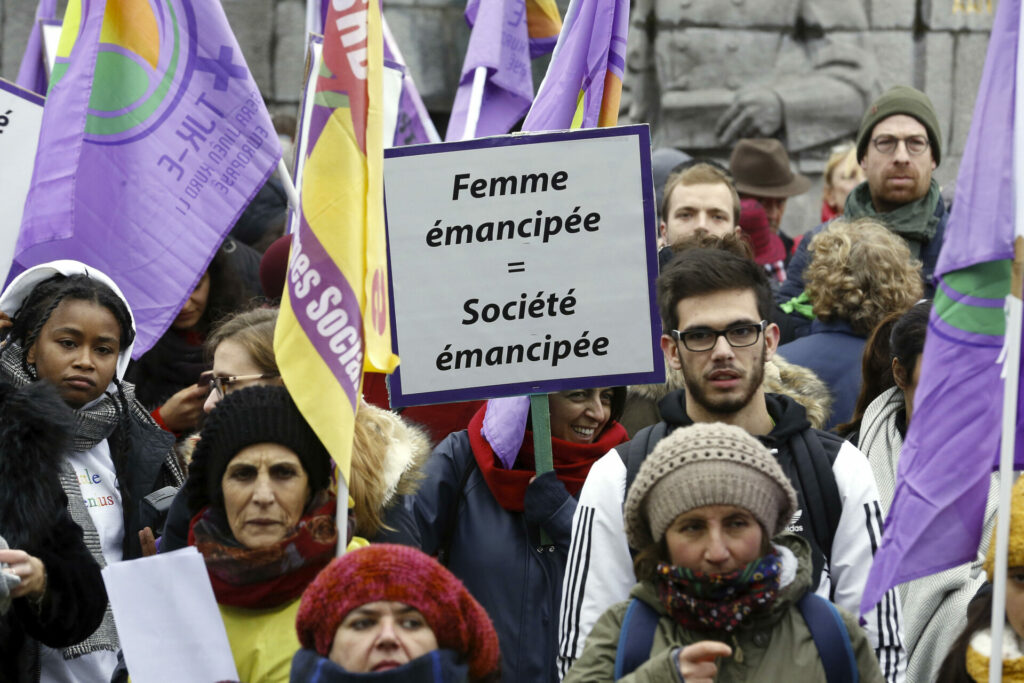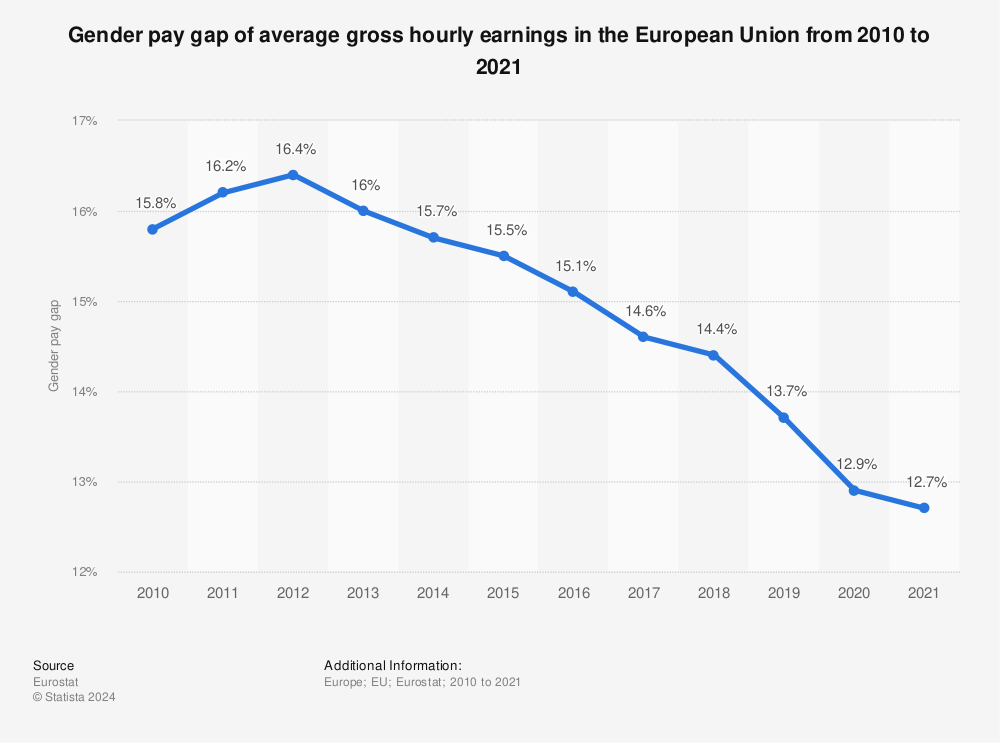On Thursday, the European Parliament passed a directive that will make employers enforce wage transparency and will introduce penalties for those who do not respect it, in a move to combat the discriminatory differences in earnings between men and women.
The regulation addresses transparency, as well as gender-neutral recruitment and, for the first time, includes the rights of non-binary people.
“My priority was to ensure the most inclusive and impactful pay transparency measures for workers,” said Dutch MEP Samira Rafaela of the Renew Group.“Not only do we finally have binding measures to tackle the gender pay gap, but also all citizens of the EU are empowered, recognised and protected against pay discrimination. Non-binary people have the same right to information as men and women.”
In 2020, women in the EU earned on average 13% per hour less than men, estimated the European Parliament. Progress has been slow in closing the pay gap - it shrunk by only 1% in the last eight years, and at this rate, it would take 84 years to reach equality.
Businesses with at least 100 employees will have to disclose periodically the average wage broken down by gender. If they show an unjustified pay gap of 5% or more, employers will have to work out a solution with staff representatives.
Under the new measure, all employers must provide information on individual and average remuneration levels when requested by an employee. Job listings, criteria and evaluation will have to be gender-neutral and the pay range of a position has to be disclosed on announcements or before the interview takes place, Euronews reports.
“Pay secrecy will be banned; there should be no contractual terms that restrict workers from disclosing their pay, or from seeking information about the same or other categories of workers’ pay,” said the EP in a statement.
The directive shifts the burden of proof from the worker to the firm. If a worker feels that they are unfairly remunerated, they will be able to take their employee to court and the employee will have to show proof that no discrimination has taken place, instead of the other way around.
A worker who has been harmed by unequal pay will be able to request compensation. Member States will have to enact penalties for employees who infringe the equal pay rules, such as fines.
The new rules are binding for Member States and will now go towards them for adoption. Member States will have three years to transpose the directive into national law after they enter into force.
Related News
- More Belgian women are working, but large gender pay gap remains
- A man's place is at work: 20-day paternity leave reinforces parenthood norms
- Female entrepreneurs earn on average over 40% less than male entrepreneurs
The gap varies broadly across the European bloc. Latvia (22.3%) and Estonia (21.1%) have the highest discrepancies. Luxembourg (0.7%) and Romania (2.4%) have the lowest gender pay gap. Belgium is also towards the top of the ranking, with a 5.3% difference between male and female average gross hourly earnings.
Lower differences, however, are not necessarily a sign of an equal labour market. A lower pay gap can occur in countries where mostly women who have a higher earning potential enter the labour market, and the overall female employment rate is lower.


